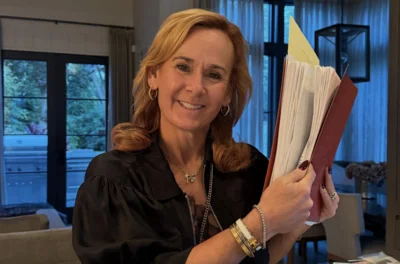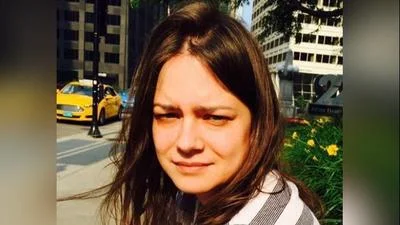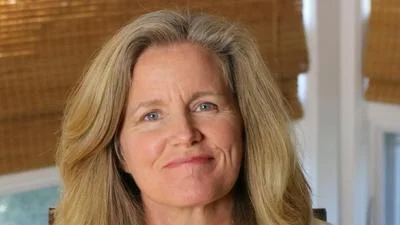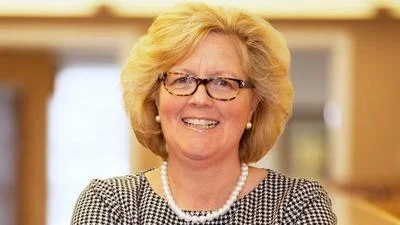Anne Stava-Murray, Illinois State Representative for 81st District | https://ilhousedems.com/project/rep-anne-stava-murray/
Anne Stava-Murray, Illinois State Representative for 81st District | https://ilhousedems.com/project/rep-anne-stava-murray/
According to the Illinois General Assembly site, the legislature summarized the bill's official text as follows: "Amends the Illinois Freedom to Work Act. Provides that, beginning on January 1, 2026, no employer shall enter into a covenant not to compete or a covenant not to solicit with any employee unless the employee's actual or expected annualized rate of earnings exceeds $300,000 per year. Effective January 1, 2026."
The following is our breakdown, based on the actual bill text, and may include interpretation to clarify its provisions.
In essence, the bill amends the Illinois Freedom to Work Act to prohibit employers, starting Jan. 1, 2026, from engaging in covenants not to compete or solicit with any employee whose annualized earnings are less than $300,000. Any such covenant made in violation is void and unenforceable. Furthermore, it bans such agreements for employees terminated due to COVID-19-like circumstances unless compensated accordingly and deems non-compete agreements void for individuals under certain labor agreements or employed in construction, except for specific managerial roles. Mental health professionals servicing veterans or first responders are also exempt from these covenants if enforcement raises service costs or difficulties. The Act becomes effective Jan. 1, 2026.
Anne Stava-Murray has proposed another four bills since the beginning of the 104th session.
Stava-Murray graduated from Dartmouth College in 2008 with a BA.
Anne Stava-Murray is currently serving in the Illinois State House, representing the state's 81st House District. She replaced previous state representative David S. Olsen in 2019.
Bills in Illinois follow a multi-step legislative process, beginning with introduction in either the House or Senate, followed by committee review, floor debates, and votes in both chambers before reaching the governor for approval or veto. The General Assembly operates on a biennial schedule, and while typically thousands of bills are introduced each session, only a fraction successfully pass through the process to become law.
You can read more about bills and other measures here.
| Bill Number | Date Introduced | Short Description |
|---|---|---|
| HB1642 | 01/23/2025 | Amends the Illinois Freedom to Work Act. Provides that, beginning on January 1, 2026, no employer shall enter into a covenant not to compete or a covenant not to solicit with any employee unless the employee's actual or expected annualized rate of earnings exceeds $300,000 per year. Effective January 1, 2026. |
| HB1589 | 01/22/2025 | Amends the Trustees Article of the Illinois Local Library Act. Provides that a candidate for the position of library trustee must have a valid library card for the library. |
| HB1590 | 01/22/2025 | Creates the Civil Liability for Unsolicited Intimate Images Act. Provides that any person 18 years of age or older who knowingly and intentionally transmits obscene material by computer or other electronic means to the computer or electronic communication device of another person 18 years of age or older commits a trespass and is liable to the recipient of the obscene material for actual damages or $500, whichever is greater, in addition to reasonable attorney's fees and costs, if the person who receives the obscene material has not consented to the receipt of the obscene material or has expressly forbidden the receipt of the obscene material and if a reasonable person who receives the obscene material would suffer emotional distress as a result of the receipt of the obscene material. Authorizes the court to enjoin and restrain the defendant from committing such further acts. Provides that "obscene material" means material, including, but not limited to, images depicting a person engaging in an act of sexual intercourse, sodomy, oral copulation, sexual penetration, or masturbation, or depicting the exposed genitals or anus of any person, taken as a whole, that to the average person, applying contemporary statewide standards, appeals to the prurient interest, that, taken as a whole, depicts or describes sexual conduct in a patently offensive way, and that, taken as a whole, lacks serious literary, artistic, political, or scientific value. Provides that the Act does not apply to (i) any Internet service provider, mobile data provider, or operator of an online or mobile application, to the extent that such entity is transmitting, routing, or providing connections for electronic communications initiated by or at the direction of another, (ii) any service that transmits material, including an on-demand, subscription, or advertising-supported service, (iii) a health care provider that transmits material for a legitimate medical purpose, or (iv) any transmission of commercial email. Provides that venue for an action under the Act may lie in the jurisdiction where the obscene material is transmitted from or where the obscene material is received or possessed by the plaintiff. |
| HB1591 | 01/22/2025 | Amends the Park District Code. Provides that no candidate for the office of park commissioner in any General Park District shall be required to file more than 300 petition signatures from qualified voters of the district. |
| HB1597 | 01/22/2025 | Amends the Assisted Living and Shared Housing Act. Makes changes to assessments for admission to establishments and service plan requirements. Requires an establishment to notify the resident and the resident's representative when there is a significant change in the resident's condition that affects the establishment's ability to meet the resident's needs. Prohibits an establishment from terminating or reducing any service without the consent of the resident or the resident's representative for the purpose of making it more difficult or impossible for the resident to remain in the establishment. Adds new requirements for establishments and the Department of Public Health regarding the involuntary termination of residency. Provides that a resident has the right to not be unlawfully transferred or discharged. Makes other changes. Amends the Nursing Home Care Act. Prohibits a resident from being transferred or discharged in violation of the Act. Provides that a resident has the right not to be unlawfully transferred or discharged. Provides for the assessment of a $2,500 fine for a facility that fails to comply with an order to readmit a resident who wishes to return to the facility and is appropriate for that level of care and services provided. Requires a facility that complies with an order to readmit a resident that has been deemed to have been unlawfully discharged to notify the Department within 10 business days after the resident has been readmitted to the facility. Provides that a facility may involuntarily transfer or discharge a resident because the facility is unable to meet the medical needs of the resident, as documented in the resident's clinical record by the resident's physician. Provides that the Department maintains jurisdiction over the transfer or discharge irrespective of the timing of the notice and discharge. Provides that if the Department determines that a transfer or discharge is not authorized, then the Department shall issue a written decision stating that the transfer or discharge is denied. Makes other changes. Effective immediately. |






 Alerts Sign-up
Alerts Sign-up